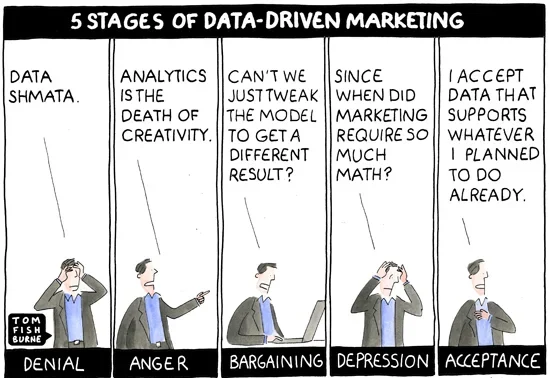In the ever-evolving marketing terrain, data has emerged as the compass guiding businesses through the complexities of consumer behavior and market trends. The digital age has not only amplified the availability of data but also its significance in crafting marketing strategies that are dynamic, personalized, and effective.
As we navigate into the future, the role of data in marketing becomes increasingly pivotal, offering insights that drive decision-making and innovation. This exploration delves into how businesses can leverage data to future-proof their marketing strategies, ensuring they remain relevant, competitive, and aligned with consumer expectations.
The Bedrock of Data-Driven Marketing
Data-driven marketing refers to strategies built on insights pulled from the analysis of big data, collected through consumer interactions and engagements. This approach enables marketers to understand their audience deeply, predict trends, and deliver more relevant content, products, and services.
The foundation of data-driven marketing lies in its ability to use data analytics to target specific audiences, personalize messaging, and measure the effectiveness of marketing campaigns.

Understanding and Segmenting Audiences
The first step in leveraging data for marketing is to gain a nuanced understanding of your audience. Data analytics tools can dissect large datasets to reveal patterns in consumer behavior, preferences, and demographics. This segmentation allows marketers to tailor their strategies to different audience segments, enhancing engagement and conversion rates.
For instance, a business can use data insights to create targeted email marketing campaigns that cater to the unique interests of each segment, significantly improving the campaign’s relevance and effectiveness.
Predictive Analytics: Anticipating Consumer Needs
Predictive analytics uses data, statistical algorithms, and machine learning techniques to identify the likelihood of future outcomes based on historical data. In marketing, this means anticipating consumer needs and behaviors before they become evident.
Businesses can use predictive analytics to forecast trends, optimize inventory based on predicted demand, and create content that resonates with future consumer interests. This proactive approach not only positions businesses as industry leaders but also enhances customer satisfaction by providing what consumers need before they ask.
Personalization at Scale
One of the most powerful applications of data in marketing is the ability to personalize at scale. Data-driven insights allow businesses to customize their interactions with consumers, from personalized product recommendations on e-commerce sites to tailored content in social media feeds.
This level of personalization was once only feasible for large corporations but is now accessible to businesses of all sizes thanks to advancements in data analytics technologies. Personalization not only improves the consumer experience but also increases loyalty and lifetime value by making consumers feel understood and valued.
Optimizing the Consumer Journey
Data analytics provides a detailed view of the consumer journey, highlighting touchpoints where consumers engage with the brand. By analyzing this data, businesses can identify areas of friction, opportunities for improvement, and the most effective channels for reaching their audience.
This insight enables marketers to create a seamless and optimized consumer journey, reducing drop-offs and enhancing the overall consumer experience.
Measuring Success and ROI
The future of marketing with data also emphasizes the importance of measuring success and ROI. Data analytics offers robust tools for tracking the performance of marketing campaigns across various channels. By setting clear KPIs and using data to measure outcomes, businesses can evaluate the effectiveness of their strategies, make informed decisions about marketing spend, and continuously refine their approach for better results.

Ethical Considerations and Consumer Privacy
As businesses navigate the future of marketing with data, ethical considerations and consumer privacy must be at the forefront. The increasing scrutiny around data collection and use highlights the need for transparency, consent, and security in handling consumer data.
Businesses must adhere to data protection regulations, such as GDPR, and prioritize building trust with consumers by safeguarding their information and using it responsibly.
Conclusion
The future of marketing lies in harnessing the power of data to unlock insights, predict trends, personalize experiences, and measure success. As technology continues to evolve, so too will the capabilities of data-driven marketing, offering businesses new opportunities to connect with consumers in meaningful and impactful ways.
By embracing a data-centric approach, businesses can ensure they are well-equipped to navigate the complexities of the modern marketing landscape, delivering strategies that are not only effective but also aligned with the evolving expectations of their audience.
The journey into the future of marketing with data is one of continuous learning, adaptation, and innovation, promising a horizon brimming with possibilities for those ready to explore.
